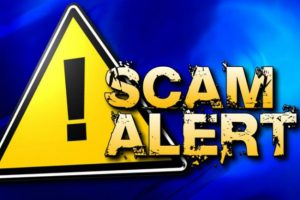 Lottery scams, sweepstakes and prize schemes are among the most serious frauds in North America in recent years, with $117 million in losses reported in Canada and the United States in 2017 alone. Researchers warn that this type of scams targets mostly seniors through cold calls, direct mail, text messages and even social media.
Lottery scams, sweepstakes and prize schemes are among the most serious frauds in North America in recent years, with $117 million in losses reported in Canada and the United States in 2017 alone. Researchers warn that this type of scams targets mostly seniors through cold calls, direct mail, text messages and even social media.
Over the past three years, around half a million people have reported such schemes to law enforcement agencies across North America, says a recent report by the U.S.-based non-profit organization Better Business Bureau. The actual number of victims of lottery and prize scams is likely to be much higher, experts point out, as many people feel embarrassed or scared to report these crimes to the police. Official data reveals that Americans and Canadians lost more than $117 million to lottery and sweepstakes scams last year. One of the most alarming aspects of these crimes is that the schemes use ever-changing methods and often hurt victims both financially and emotionally.
According to the Better Business Bureau Scam Tracker tool, 2,820 people in Canada and the U.S. have reported prize and lottery scams to the non-profit in 2017. They lost $500 on average, but seniors tend to suffer the largest financial losses, researchers say. Usually, the payment method is wire transfer and the “cold calls” often originate from Jamaica, Costa Rica and Nigeria. In one of the most common schemes, victims receive a call and are told they have won money or prizes such as new phones. Of course, then they are asked to send some money that would cover the “fees”.
The report also explains that criminals sometimes misuse the established names of companies such as Publishers Clearing House Sweepstakes or of various financial or lottery institutions. The fraud also often includes several steps, which aim at collecting victims’ personal information through simple calls or emails where no money is requested. Once criminals have your personal information, they can send you a second fraudulent email that looks like legitimate correspondence from a bank or another institution.
Lottery Fraud-Related Gang Wars in Jamaica
 Lottery and sweepstakes scams bring in massive amounts of funds in Jamaica, experts say. This type of fraud is so common and so effective in North America that the huge cash flows have resulted in gang wars between rival fraud groups in Jamaica. According to the Better Business Bureau report, which uses data from law enforcement agencies in Canada and the United States, these gangs in Jamaica use the money to buy guns and drugs. The country has the same population as Chicago but the number of murders is twice as much – 650 in Chicago compared to 1,616 in Jamaica in 2017 alone. To combat these issues, the government has declared a State of Emergency in a large part of the country.
Lottery and sweepstakes scams bring in massive amounts of funds in Jamaica, experts say. This type of fraud is so common and so effective in North America that the huge cash flows have resulted in gang wars between rival fraud groups in Jamaica. According to the Better Business Bureau report, which uses data from law enforcement agencies in Canada and the United States, these gangs in Jamaica use the money to buy guns and drugs. The country has the same population as Chicago but the number of murders is twice as much – 650 in Chicago compared to 1,616 in Jamaica in 2017 alone. To combat these issues, the government has declared a State of Emergency in a large part of the country.
In Canada and the United States, about one-third of the lottery and prize fraud complaints filed with the FBI’s Internet Crime Complaint Center are about scams in social media. Experts warn that any lottery should be licensed and authorized by law in order to be legal, reliable and safe. In order to enter a lottery, you need to purchase a ticket, whereas sweepstakes are free and do not require purchase. Even lotteries, however, should not ask you to transfer money to bank accounts in order to enter. More importantly, experts say, any program that asks you to make a payment in order to claim a prize should be considered a scam.



















